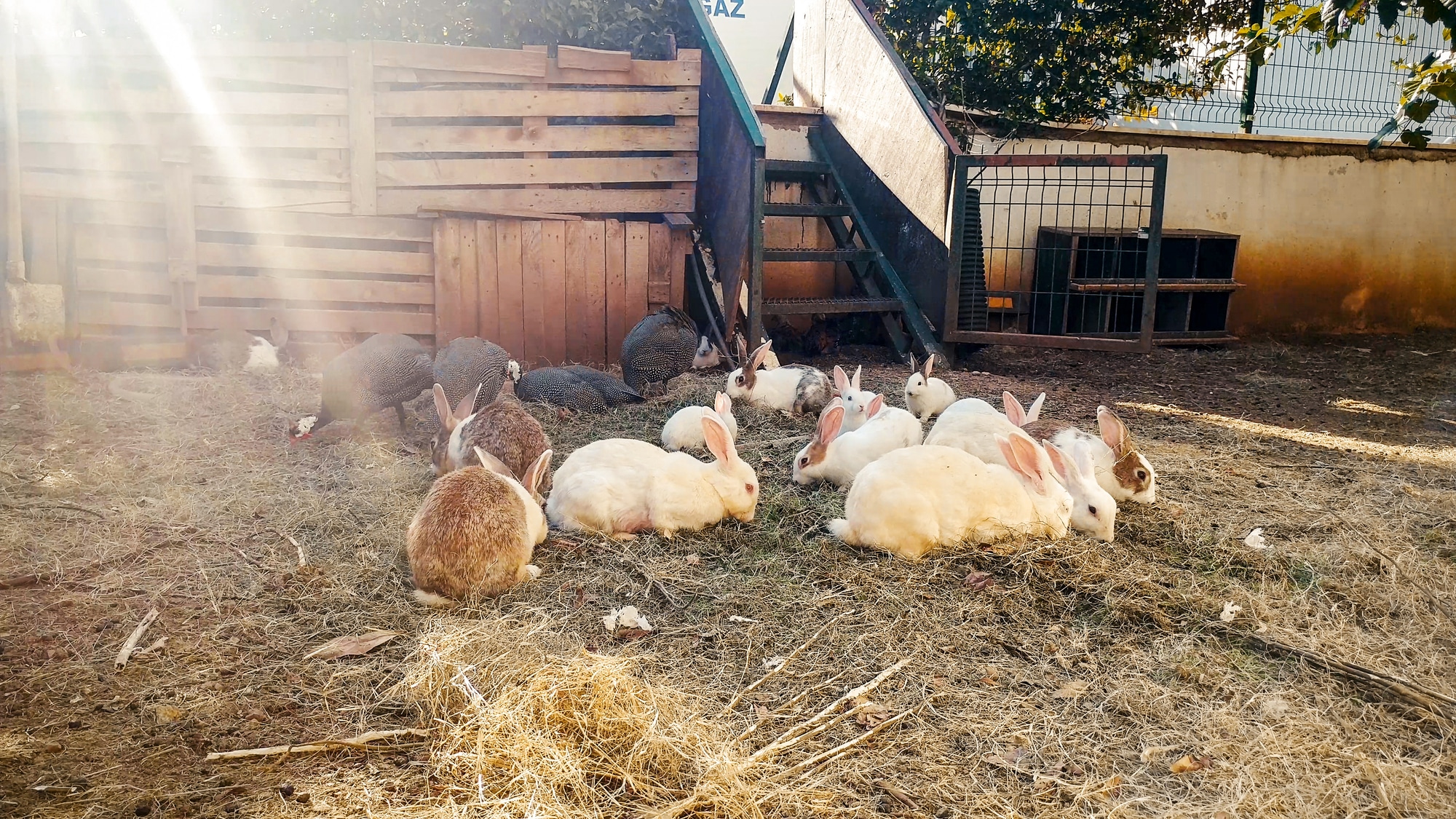If you’re considering getting a pet rabbit, it’s important to understand that not all rabbit breeds are created equal. While some bunnies are known to be docile and friendly, there are some aggressive rabbit breeds that can be dangerous if not handled properly. In this article, we’ll uncover the truth about aggressive rabbit breeds and provide you with all the information you need to keep your pet bunny safe.
What Are the Most Aggressive Rabbit Breeds?
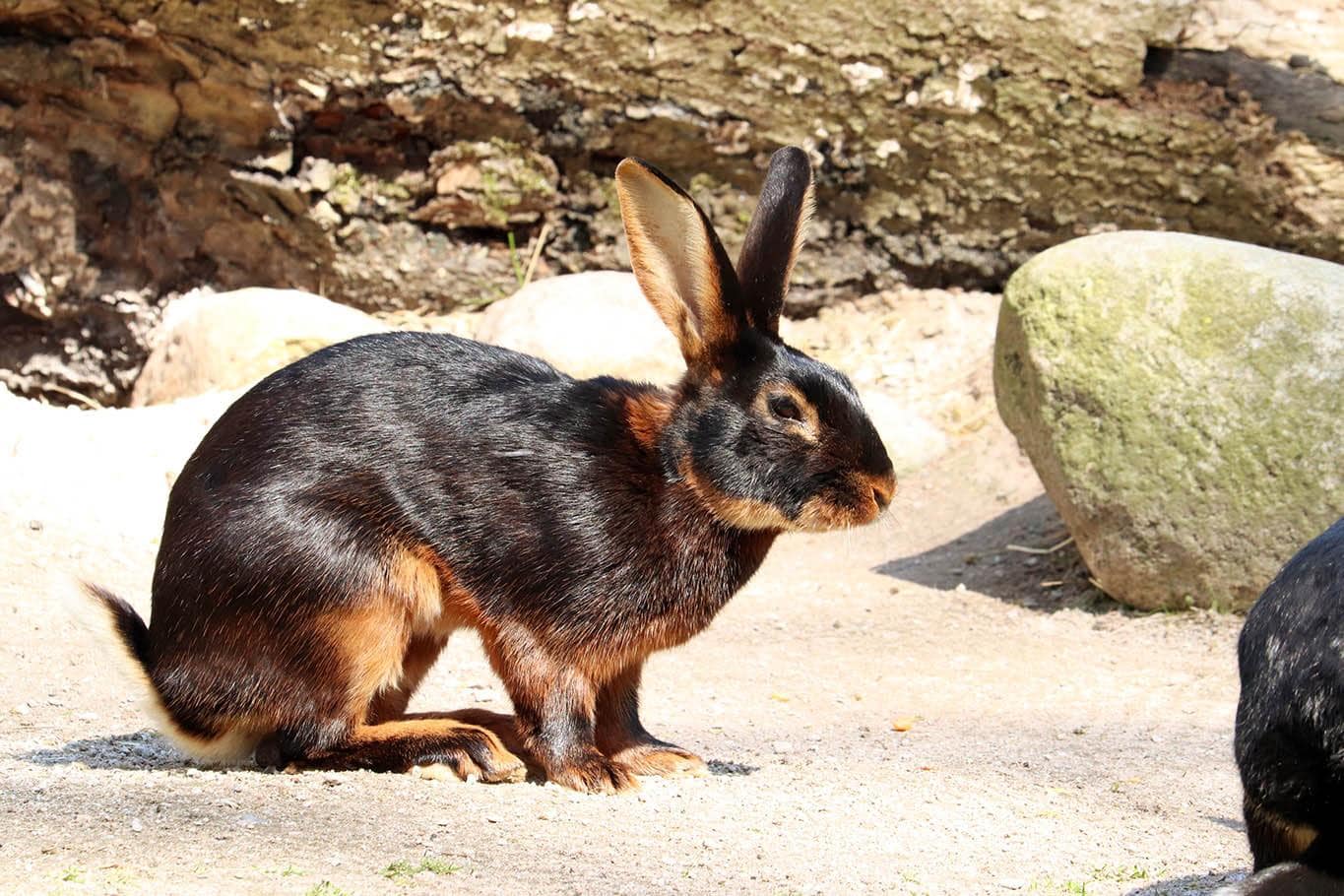
The most aggressive rabbit breeds tend to be territorial and territoriality is the main cause of aggression in rabbits. Aggressive rabbits can be a danger to themselves, other animals and their human caretakers.
The following breeds are known to be the most aggressive:
- Lionhead
- Mini Lop
- Giant Angora
- Rex
- English Spot
Certain breeds, such as the Holland Lop, are not typically aggressive, although they can become territorial if not handled properly. To help prevent aggression in all rabbits, it is important to handle them gently and with respect, and to provide them with plenty of space, enrichment, and the right diet.
Are Holland Lops Aggressive?

Holland Lops are known as one of the most popular rabbit breeds due to their small size and friendly nature. They are known to be quite gentle and make great pets, but are they aggressive?
The good news is that Holland Lops are generally not considered an aggressive breed. They tend to be quite docile and often enjoy being handled. Holland Lops also tend to be very social and enjoy interacting with humans. In general, they are not prone to aggressive behavior.
That said, if a Holland Lop is not properly socialized or handled, they can become territorial, resulting in aggressive behavior. Additionally, they should never be teased or mishandled, as this can cause them to become fearful and may even lead to aggression.
The best way to ensure a Holland Lop remains friendly and non-aggressive is to provide them with plenty of socialization, handling, and attention. Doing so will help create a bond between you and your rabbit and will ensure they remain a trustworthy, gentle pet.
Overall, while aggressive rabbit breeds do exist, Holland Lops are generally quite docile and friendly. With proper socialization and handling, they can remain a safe and loving pet for many years to come.
Common Traits of Aggressive Rabbits
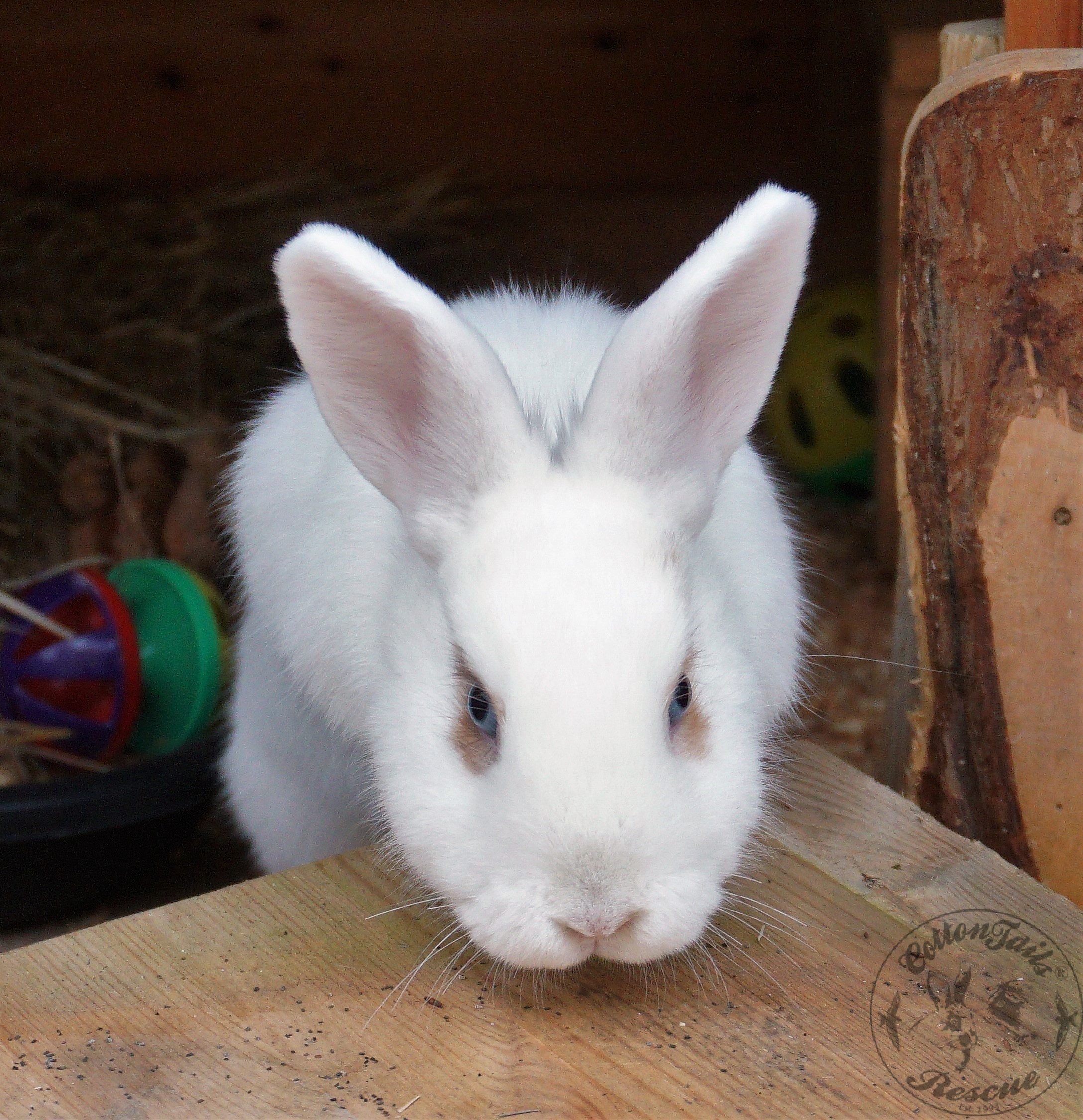
- Territoriality: Aggressive rabbits are more likely to defend their territory by attacking or chasing away intruders.
- Fear or Anxiety: Aggressive rabbits may become violent when they are scared or anxious.
- Overprotection: Aggressive rabbits may become overprotective of their owners and may attack other pets or people who come near them.
- Pain: An aggressive rabbit may bite or scratch when they are in pain or discomfort.
- Hormones: Hormonal changes can cause aggressive behaviour in rabbits.
- Personality: Rabbits with certain personalities may be more prone to aggressive behaviour than others.
Minimizing Aggression in Rabbits

- Introduce rabbits slowly: If you have multiple rabbits, introduce them slowly and in a controlled environment. This will allow them to become familiar with each other in a stress-free environment.
- Provide plenty of space: Make sure your rabbits have enough space in their enclosure. If they feel crowded, they may become aggressive.
- Provide plenty of hiding places: When rabbits feel threatened, they will retreat to their hiding places. Having plenty of hiding spots in the enclosure will give them an option to retreat and feel safe.
- Don’t force rabbits to interact: Don’t force your rabbits to interact. If they don’t seem to be getting along, separate them and provide them with their own space.
- Provide plenty of enrichment: Offering enrichment activities such as tunnels, toys, and treats can help to keep rabbits occupied and reduce aggression.
- Spay or neuter your rabbits: Spaying and neutering rabbits can reduce the hormones that can lead to aggression.
- Monitor their behavior: Keep an eye on your rabbits and watch for any signs of aggression. If you notice any signs of aggression, intervene and separate the rabbits.
Providing an Enriched Environment
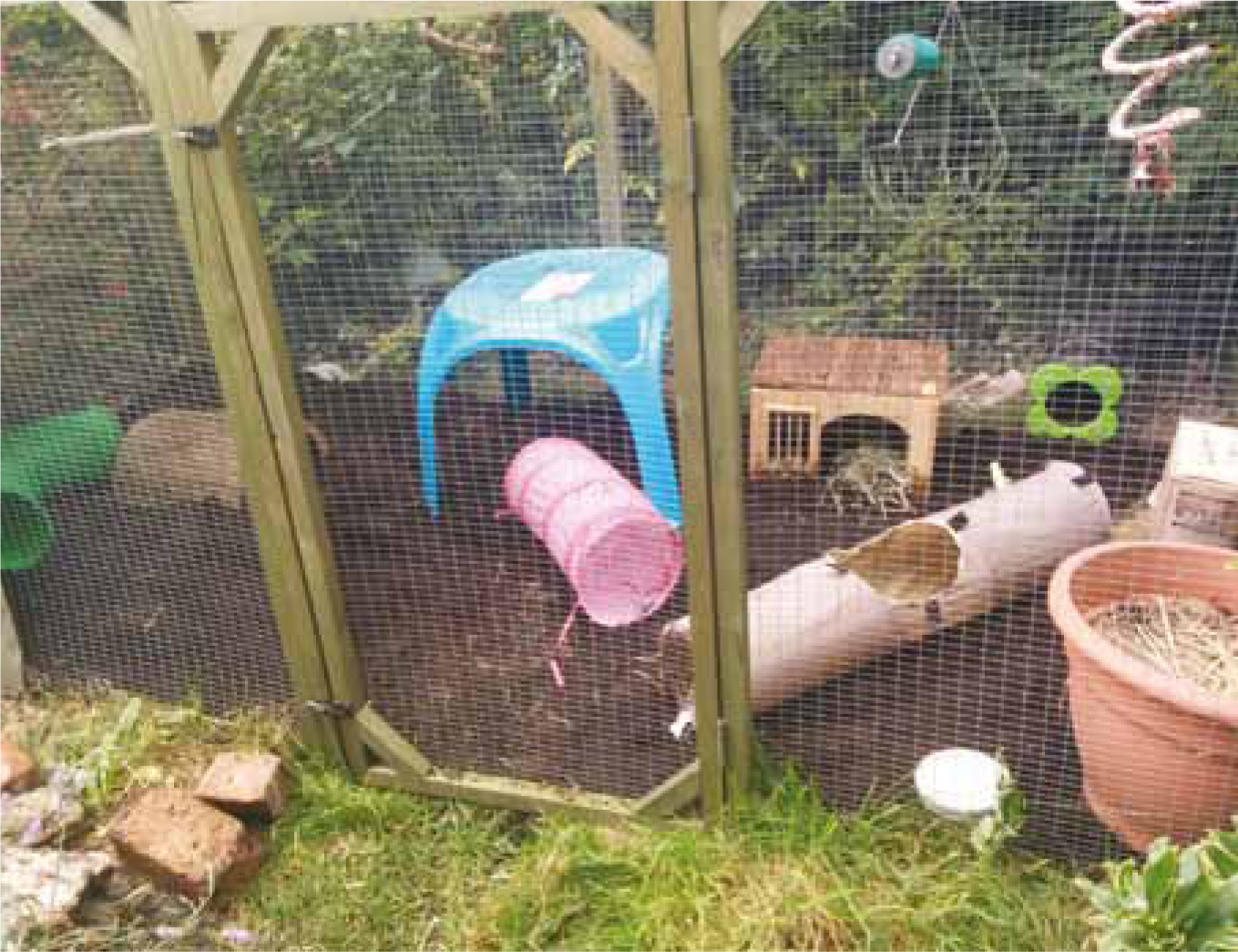
- Providing ample space: Rabbits should always have plenty of space to hop around and explore. A minimum of 6-8 square feet is recommended for an adult rabbit.
- Adding toys: Toys are essential for providing enrichment for rabbits. Consider adding tunnels, boxes, and chew toys for your rabbit.
- Providing foraging opportunities: Foraging for food is an important part of a rabbit’s natural behavior. Offer your rabbit hay, vegetables, and treats to forage for and forage toys to keep them entertained.
- Making hiding spots available: Rabbits like to have places to hide from potential predators. Provide your rabbit with boxes, tunnels, and other hiding spots they can use to feel safe.
- Offering enrichment activities: Enrichment activities can help keep your rabbit mentally stimulated and engaged. Consider offering your rabbit an obstacle course, games, and activities.
- Providing companionship: Rabbits are social animals and need companionship to stay healthy and happy. Consider adopting a friend for your rabbit if possible.
Defining Boundaries
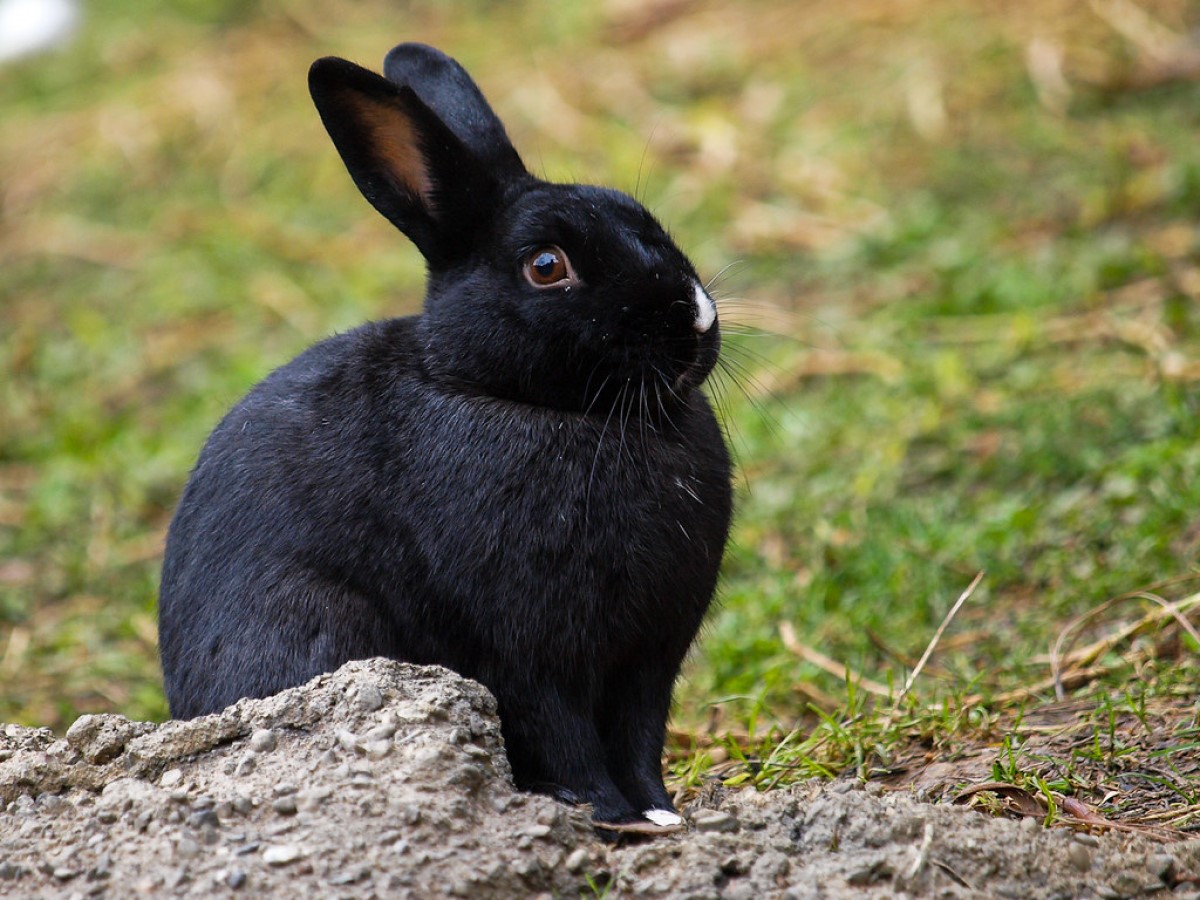
Making sure your rabbit is safe starts with defining boundaries. Rabbits should be kept in an area that has been rabbit-proofed, meaning that any wires, cords, or other potentially dangerous items have been removed or made inaccessible. This includes items like electrical cords, small objects that could be swallowed, and any items that a rabbit could chew on.
Fencing is also important for keeping your rabbit safe. A fully enclosed area with a “dig guard” at the bottom is ideal for rabbits that are allowed to roam outside of their cages. This will prevent them from digging out of their enclosures and escaping.
In addition, it is important to establish boundaries between humans and rabbits. It is important to remember that rabbits are prey animals, and they will react defensively to loud noises, sudden movements, and unfamiliar people. When interacting with rabbits, it is important to use gentle movements and a soothing voice.
| Activity | Rabbit-Proofing | Fencing | Establishing Boundaries |
|---|---|---|---|
| Remove or make inaccessible | wires, cords, or other potentially dangerous items | Fully enclosed area with a “dig guard” | Gentle movements & soothing voice |
Early Socialization
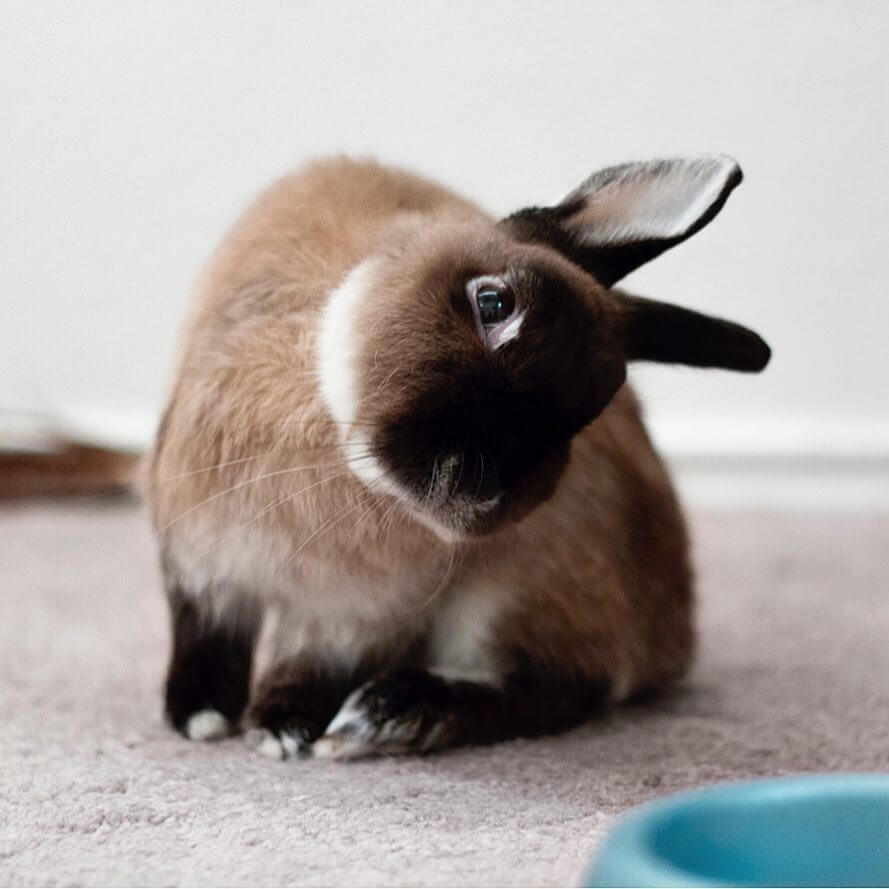
Rabbits are highly social animals and need to be exposed to humans and other animals from a young age to prevent them from becoming aggressive. It is important to start early socialization with rabbits as soon as possible, so that they can begin to bond with their owners and become accustomed to different environments, sounds and people. Early socialization should involve providing rabbits with plenty of safe and secure handling, as well as introducing them to different sounds and textures. Providing them with toys and novel objects to explore also helps to reduce their stress levels and can make them more comfortable around people. Additionally, introducing rabbits to other animals and people in a positive way can help to prevent them from becoming aggressive.
It is also important to note that rabbits may become aggressive if they are not given enough space or if they become bored. Providing them with plenty of space to explore, as well as environmental enrichment activities such as digging and playing with toys, can help to reduce their stress levels and prevent them from becoming aggressive.
Alternatives to Aggression
When dealing with most aggressive rabbit breeds, it is important to recognize the signs of aggression and take steps to prevent it. Rabbits that are not properly socialized may become aggressive and lash out at people and other animals. Here are a few tips to help reduce aggression in rabbits:
- Give your rabbit plenty of exercise and stimulation; rabbits need regular time to explore their environment and be active.
- Provide your rabbit with ample toys, tunnels and other items to keep their minds and bodies active.
- Spend time with your rabbit every day to build trust and bond with them.
- Provide your rabbit with a safe, secure environment without too much stimulation or noise.
- Be patient and consistent when working with your rabbit; never use physical punishment or reprimand them harshly.
- Be mindful of your rabbit’s body language; if they seem stressed or uncomfortable, give them space and time to relax.
It is important to note that are holland lops aggressive? Holland Lops are generally not an aggressive breed, but as with any other animal, they can become aggressive if not properly socialized or if they feel threatened. It is important to handle them gently and give them plenty of time to get used to their surroundings.
Finally, it is essential to understand the aggressive rabbit breeds and take the necessary steps to prevent aggression. By providing your rabbit with a safe, secure environment and plenty of stimulation, you can help ensure that they are happy and healthy.
Frequently Asked Questions
Are Certain Breeds of Rabbits More Aggressive Than Others?
Yes. Different breeds of rabbits can exhibit different levels of aggression. Some breeds, such as the Dutch and Rex Rabbit, tend to be calmer and less aggressive. Other breeds, such as the Mini Lop and Flemish Giant, are more prone to aggression. The best way to determine the level of aggression in your rabbit is to observe its behavior and contact a vet if any changes or concerning behaviors occur. Additionally, it is important to provide proper socialization and training to ensure that your rabbit is comfortable around other animals and people.
What should I do if my Rabbit Shows Signs of Aggression?
If your rabbit is showing signs of aggression, the most important thing to do is remain calm and not aggravate the situation further. Take the rabbit out of the environment that is causing the aggression and examine the cause. If the aggression is due to an underlying health condition, seek veterinary help as soon as possible. If the aggression is due to environmental factors, such as overcrowding or poor living conditions, make necessary changes to the environment to reduce stress and address the underlying cause of aggression. Other tactics to reduce aggression include offering treats, providing plenty of hiding places, and providing toys and other forms of enrichment. If the aggression persists, contact an animal behaviorist for more advice.
What Can I Do to Prevent Aggression in My Rabbit?
Socialize: All rabbits should be socialized, no matter their breed. This means introducing them to other rabbits, people, and situations gradually and in a positive way.
Provide Opportunities to Exercise: Regular exercise helps to keep a rabbit’s mental and physical health in balance. Make sure your rabbit has space to explore and enough toys to stimulate their mind.
Give Attention: Rabbits are social animals and need attention and love. Spend time playing with your rabbit and providing them with positive reinforcement when they show desired behaviors.
Minimize Stress: Stress can trigger aggressive behavior in rabbits. Make sure your rabbit has a safe and comfortable environment, enough space to move around, and a healthy diet.
Provide Enrichment: Make sure your rabbit has plenty of toys and other enrichment activities to keep them mentally stimulated. This can help to prevent boredom and aggression.
How can I tell if my rabbit is aggressive?
Behavioral Signs:
- Biting or nipping your hands or feet when you try to pet them.
- Lunging at you or other animals.
- Growling and grunting.
- Barking or puffing up their fur.
- Biting furniture, other animals, or people.
- Digging and scratching a lot.
Physical Signs:
- Ears that are lying flat against their head.
- A tense body with raised fur.
- Pupils that are dilated.
- A thumping back foot.
- Fur that is standing on end.
What are some common signs of aggression in rabbits?
- Growling and hissing: Rabbits can growl and hiss when they are feeling threatened or if they are trying to protect their territory. This is a common sign of aggression in rabbits.
- Lunging: Rabbits may lunge at you or other animals if they feel scared or threatened. This is a sign of aggression and should be taken seriously.
- Biting: Biting is a sign of aggression in rabbits and should not be taken lightly. Biting is usually a last resort when a rabbit is feeling threatened or scared.
- Chasing: Rabbits may chase other animals or people if they feel threatened. This is a sign of aggression and should be taken seriously.
- Thumping: Thumping is a sign of aggression in rabbits and is usually done when a rabbit is feeling threatened or scared. Thumping is usually done in short bursts with the back legs.
Conclusion
Though some rabbit breeds are considered to be more aggressive than others, with proper care and handling, all rabbit breeds can be kept safe and healthy. Taking time to understand the unique needs of your rabbit and providing them with the proper care and environment can go a long way in keeping your rabbit safe and healthy.
Ultimately, the best way to ensure the safety of your rabbit is to ensure that you are educated about their needs and that you are providing them with the best possible care. With the right amount of research and dedication, you can ensure that your rabbit is happy, healthy, and safe.
